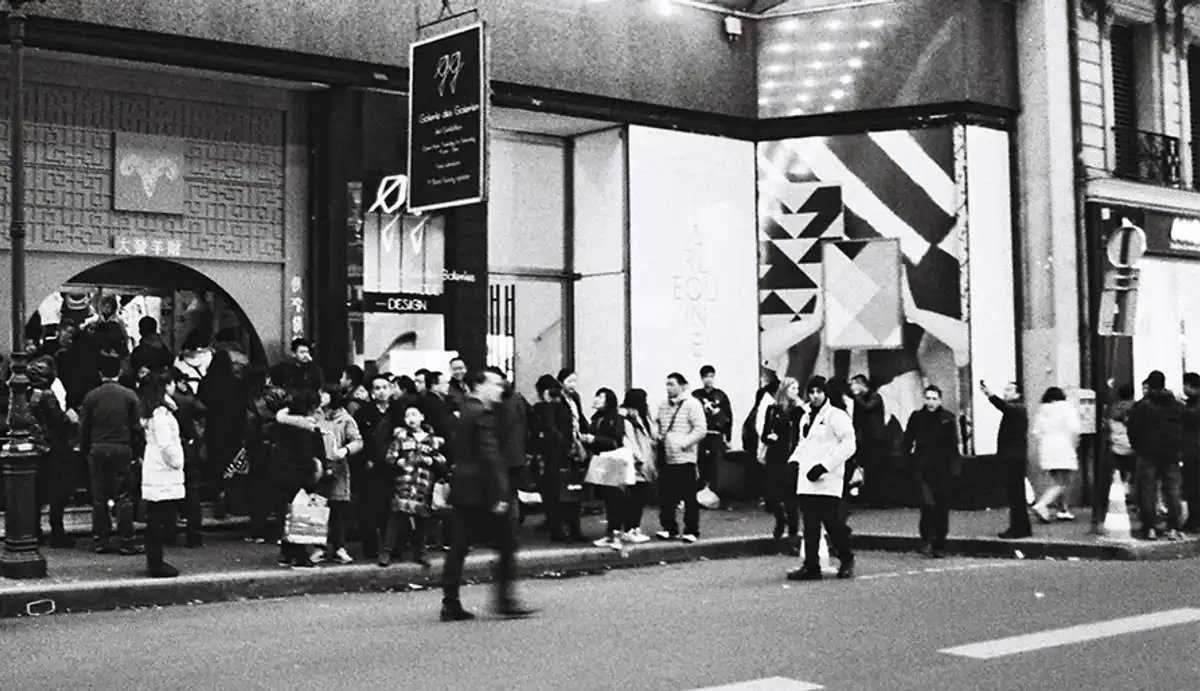Growing up in a small Dutch village where bricks-through-the-window tactics ensured ethnic homogeneity and where sexual ‘deviance’ (homosexuality, for example) was returned with elaborate forms of social exclusion and intimidation, I’ve never understood what it is about Dutch values that merits promoting them – let alone going to war for them. When places like the Netherlands and Denmark took a decisive culturalist turn in the 90s to ‘inform’ newcomers about Western values (egalitarianism, individual freedom and secularism) through a series of complicated policies and welfare institutions, they effectively said that refugees – many of whom were torture victims, fleeing all sorts of horrific economic and political oppression – were more in need of education about liberal democracy and human rights than the brick-throwing, swastika-spraying country bumpkins of my hometown. The idea that this month’s ISIS attack on Paris constitutes an attack on French/Dutch/Western values from within, or that it highlights a failure of integration, is nonsensical. Apart from taking for granted a concept of Western values that is as condescending towards immigrants as it is delusional in respect to native European populations, pinning radicalization on a problem of values obviously deflects attention from the effects of racial discrimination and socio-economic marginalization. Denying ethnic minority citizens jobs makes them disproportionately poor, which facilitates racial stereotypes of them as ‘leeches’ (in welfare states) or criminals – which in turn denies them more jobs. Values do not stop potential terrorists; increased efforts to combat employment and housing discrimination might, and demilitarization would be a first step in pre-empting ISIS’ ‘war on Muslims’ rhetoric. The fact that François Hollande, David Cameron and Dutch PM Mark Rutte are citing Western values as justifications for bombing Syrian civilians illustrates that grouping ‘human dignity’, ‘democracy’, and even ‘women’s rights’ into racialized and territorialized sets of values makes them available as moral ammunition for warmongers. Obama this week argued that the refusal of thirty-one Republican governors to let Syrian refugees into their states conflicts with American values of ‘compassion.’ But these governors are democratically elected. So either Americans are not compassionate, or there is no such thing as a collective, homogenous American values list. Obama is compassionate because his parents raised him well, or because Michelle won’t have breakfast with a man who ignores the plight of the displaced. He is not compassionate because he is American. And if it is because he’s American, then he represents a part of America, not all of America. When it comes to accommodating refugees, the U.S. is not any more compassionate than Turkey, Jordan or Lebanon. Though group values are also mobilized in the service of kindness, this unfortunately does little to subvert their inherently problematic nature. International humanism caught on when the full extent of the horrors of World War II began to dawn on Europe. Today’s crisis of displacement calls for its reformulation, starting with the proper implementation of the 1951 Refugee Convention. This will require a rethinking of our culture concepts, lest we allow ‘culture’ to be hijacked by the likes of Donald Trump. Obama’s appeal to American compassion sums up the paradox of the culturalized immigration politics: ‘[it] urges both that Danishness be protected and that Danes live up to international human rights standards,’ writes anthropologist Gabri Schmidt in reference to, well, Denmark. As long as it is monopolized as a marker of danskhed (Danishness) or Western civilization, humanism hinges on the dehumanization of ethnic Others. When refugees are being conflated with the murderers they are fleeing from because of their religion, complexion or nationality, American compassion is of little help to them. Compassion is all good and well – but we also need to urgently free ‘difference’ from totalizing culture concepts and liberate humanism from Western values. Just as the dismissal of race and gender as legitimate scientific categories has not ended the battle against racism and sexism, some use of the culture concept must be made to resist a culture of assimilation. A recapturing of heritage, community and ethnicity as perpetually-transmorphing, ever-messy and always-incomplete identity markers may be a first step towards multiculturalism with humans – and, crucially, a humanism with culture as the common denominator of what it means to be human, not ‘Western values.’ The ISIS attack in Afghanistan is then not only an attack on Hazara Shi’is, and the ISIS attack in Beirut not only an attack on a ‘mostly shi’i neighbourhood’ – they are then also, like the killings in Paris, attacks on all of humanity. The militaristic response to the Paris attacks and the Europe-wide surge of Islamophobia underscore the urgency of abandoning ideas about group values and the homogenized notions of ‘culture’ they are premised on and reproduce. Anthropologist Anne Philips suggests we move towards a multiculturalism ‘without culture’, that is to say, a set of policies that safeguards against majoritarianism but also recognizes the multiple axes along which difference is constituted. British multiculturalism, she argued, tends to exaggerate the unity within a given minority group, thereby exoticizing and solidifying cultural difference in a way that is likely to disadvantage less powerful members of a minority group. Stressing the plurality of self-identifications and social structures that shape people’s relationship with their community and the nation-state may prevent, for instance, a multiculturalism that erases the concerns of Muslim women. More topically, it would then also be common sense (though it should already be) that one may share a religion with the Paris attackers (Islam) or a skin colour (brown) but not a political ideology (ISIS), just as it is already common sense that my atheism and sexual orientation mark me different from the fellow white people in my village of origin. Collective punishment is only possible when there are collectives.
Paris and the Tyranny of Values

How the promotion of majoritarian culture solidifies difference and why we need to liberate humanism from Western values



